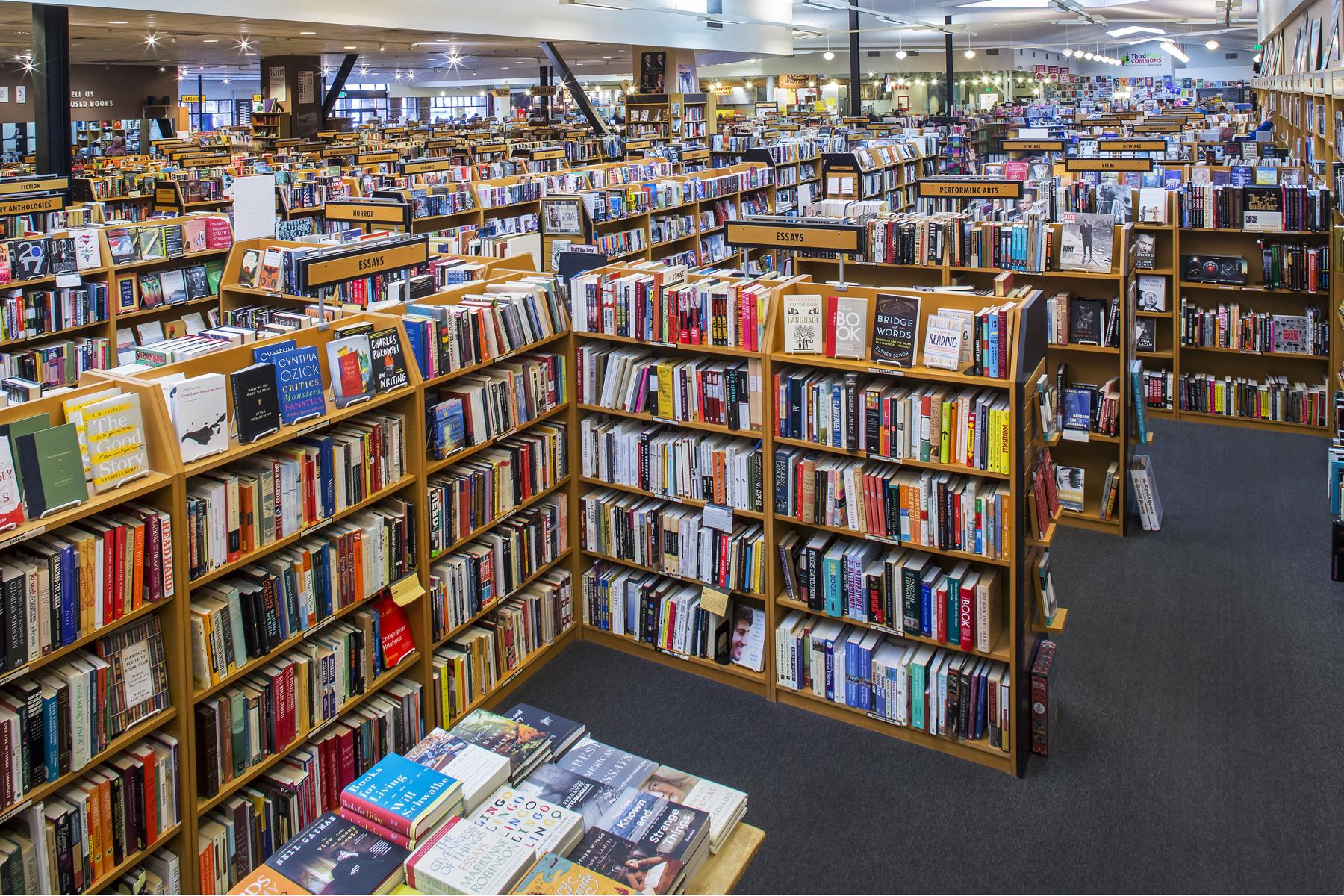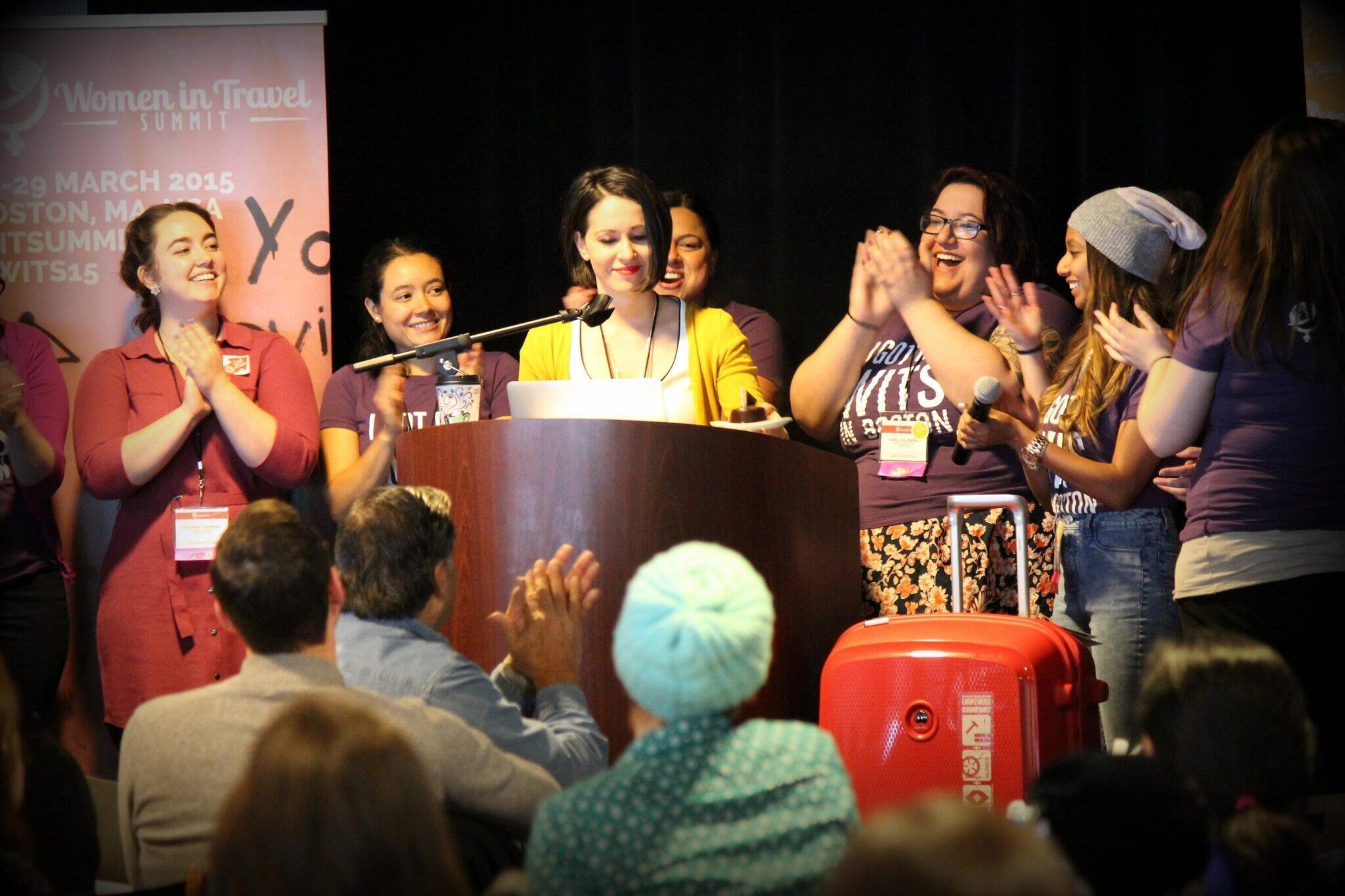Brendan Slocumb talks to Fodor's about his debut novel, 'The Violin Conspiracy.'
Greetings, travelers! We’ve got an exciting announcement: Welcome to Fodor’s Book Club! “Fodor’s has a book club now?” Yes! Because when you think about it, not only are books some of our most trusted companions while we travel, but they have the ability to excite us, inspire us, and open up our world—just like travel does.
We’ve got so much planned for our book club, including exclusive author Q&A’s like this one, fabulous book-related content, and even some special giveaways planned. Want to be the first to know more about Fodor’s Book Club? Sign up for our newsletter. And keep your eyes on our Instagram—we have another fun announcement coming this week!
Our inaugural pick, The Violin Conspiracy by Brendan Slocumb, begins as a Whodunit mystery. But as Agatha Christie once said, “Crime is terribly revealing.”
Ray McMillian is an incredibly gifted violinist, preparing for a life-changing, and life-affirming, classical music contest—the Tchaikovsky Competition in Moscow. A Black musician hailing from North Carolina, his most prized possession, a genuine Stradivarius, goes missing from his hotel room right before the competition. What follows is part mystery, part exploration of race and class, and a thrilling chase to get back his violin.
Not only does the book give us a behind-the-curtain peek of the world of classical musicians but it uses the mystery at the center of the narrative to articulate how lonely it can often feel to be the only Black person in a room; having to constantly strive to prove yourself, your worthiness, and your talent.
It’s a thrilling and thought-provoking debut from Slocumb, who took the time to chat with us about the book, the themes it explores, and the potential calls from Netflix.
Warning! Spoilers ahead for The Violin Conspiracy.

Your debut novel is a thriller/mystery, but there are other themes. Grief for the violin, for his grandmother, and for the dreams of his ancestors; racial discrimination and the prejudice that’s a reality for Black people everywhere in the country. It’s also a coming-of-age story and a tale of triumph and passion. How hard was it to write a book that will speak to readers on such different levels?
I don’t think that I set out to write a book to “speak to readers on such different levels.” I set out to write a really great story, one which had some similarities to my own life, but one that was essentially a story that I very much wanted to tell.
To the extent that my story reflects “a reality for Black people everywhere,” I’m so delighted that my perspective and my experiences seem to be resonating. I very much hope that when people read this book they’ll ask themselves questions like, Am I looking at everyone through the same lens? and Do I need to shift my perspective? and Are things I do all the time and take for granted really different for other people? If readers do ask themselves these kinds of questions, then this book will really touch them, and everyone will be the better for it.
How much of you is in the main character, Ray?
Ray is very much based on my own experiences. Like Ray, I had a grandmother who I adored (I actually had two) and who supported my love of music. I had no intention of going to college, and didn’t really think I’d go to college–I just loved music, and played the violin from the time I was nine. When I’ve been faced with discrimination or people being jerks to me, I learned that no matter how I chose to deal with them, I had to treat them with respect: I had to have enough self-respect to know when to listen and when to speak. I don’t raise my voice – that, to me, is a sign of disrespect toward anyone. My family taught me the golden rule, and I really do try to live by it: treat other people the way you want to be treated, even if they don’t treat you the same way.
Ray has a mentor who guides him, Dr. Janice Stevens. Can you tell us about your own Dr. Janice Stevens?
My Dr. Janice Stevens was my college violin teacher, Dr. Rachel Vetter Huang. She not only taught me how to play the violin, but she taught me how to teach, instilling in me a confidence that I never knew I was capable of exuding. She made me want to do my best all the time. Her honesty in her approach is what I still try to do with all of my students. If they play something well, I will shout it to the world. If they play something poorly, I don’t hesitate to let them know what needs to be done to make it sound better.
Dr. Huang’s goal was to make you the best you could be. She knew that everyone had different abilities, and played at different levels; her goal was to make you better from whatever level you started from. She had a way of being gentle but firm. Everything she said–everything–from the moment you walked into her office was something to help you, to nurture you, to sustain you. This went far beyond teaching lessons: it was how she was as a human being. Warm and utterly supportive. She came to events, came to watch us perform; she (and her husband) let me babysit her oldest son. She was like this with all her students: 100% genuine. She wanted every one of her students to do well, and all of us knew this.
I had never felt so nurtured or cherished, and it made an enormous, life-changing difference to me. To this day, I never want to disappoint Dr. Huang.
Ray has no male role models. From his grandmother and aunt to Dr. Janice Stevens, women are the pillars of his life. In fact, men in the book aren’t kind to him. How different would Ray’s life be if he had a father figure? Is this a piece from your own life, too?
I like to think that Ray’s life would have been different in a positive way with a strong male figure in his life. If his father were in the picture, I imagine he would be close to Ray. I’d imagine that they would have spent a great deal of time together. Perhaps Ray’s dad could have taken a more nurturing role of Ray’s musical ability, and maybe his dad would have encouraged him to try different things, like athletics. Ray probably would have been a track star.
My parents separated when I was in elementary school, and although my dad was always a part of my life, I lived with my mom and saw my dad much less frequently. Although he didn’t quite understand my love of the violin and classical music, he was as supportive as he could be, and got me my first rental violin.
How has the pandemic affected classical musicians?
The pandemic has completely wreaked havoc on the livelihood of classical musicians. For musicians all over the world, from symphony players to teachers to recording artists. For many, it became a total stop to how we make a living. Personally, all of the gigs I had lined up to play in 2020 were canceled. No weddings, receptions, dinners, concerts, rehearsals, lessons. It was devastating.
It was a huge loss of revenue for me as well. I made a living through teaching private lessons. The early days of the pandemic made all of that cease. At one point I lost all motivation and didn’t want to even practice. I thought to myself, “What’s the point?”
Luckily, I used the pandemic to work on this novel. By now, knock on wood, the situation has vastly improved for classical musicians. Small gatherings are taking place more often. We are rehearsing in symphony again, and are again giving lessons.
Kids every day are going through the experiences that Ray went through—prejudice against him, judging him as a Black person who couldn’t possibly produce a white person’s music, racism, and dehumanization at the hands of police, teachers, and other students. What would be your message to those kids? And what’s the one thing you’d like to tell teachers who are a big part of the problem?
A lot of Black people have to go through the same kinds of experiences that Ray went through. That said, the situation can be often more pronounced for Black men. To that end, I almost always have had “The Talk” with my male students about what they will potentially experience: being singled out for their color; being suspected of malfeasance because of their color; being thought of as less educated, less cultured, less capable because of their color. My message to them is always to be respectful–just like my (and Ray’s) Grandma Nora said. I tell my students that if they go through any of these situations, it’s okay to be angry. They have the right to be angry. Be angry, but keep your anger in check and always be respectful.
I’ve talked to white female teachers who treated Black male students differently from their other students. Some of these teachers would speak to the kids in a certain way: voice raised; the teacher always seemed to be angry; and for the elementary students, the teacher would tower over them as they berated them. When I’d ask these teachers why they talked to the student that way, the teacher would usually say, “It’s the only way I can get through to him.”
I’d tell these teachers to instead try putting themselves in that student’s shoes. He probably gets yelled at all the time by other authority figures. He’s probably just as frustrated as you are. Instead of raising your voice and looming over him, try treating him like the other kids–one who just happens to be Black. It doesn’t mean that he’s any less capable of understanding you, or less able to meet your expectations. You never gave him the same chance the other kids got. Your perception of what he can and can’t do might have been set when you first read his name.
It was really fun getting a glimpse into the world of classical music and musicians. How can readers continue to dip their toes into it and learn about classical music without it seeming intimidating?
Music is one of the greatest things in my world: I love all types of music, but classical music holds a special place.
In general, though, I’d suggest that you try to have an open mind when you go into listening to a piece, or a genre, that’s new to you. If you have the time and bandwidth, research a little about the piece before you hear it or even after you hear it.
I often tell my students the background of the composers or what was happening in the world at the time the composition was written. I’m often surprised at how well they can relate to the music once they feel even the smallest connection. A slow piece of French music, like the Pavane by Faure, seems to evoke walking along an empty sidewalk on a gloomy spring day in Paris. When they hear the music and draw their own comparisons of what the music reminds them of, they make the connection. They take ownership. I really love seeing people who you would never “expect” to be classical music fans really get into a piece of music because of what it reminds them of, or because they like a specific rhythm–or even the composer’s name. Open mindedness goes a long way. Classical music is not a boring old person’s genre.
We know this story has had much buzz surrounding its TV series adaptation–first of all, congrats! We can’t wait to binge–and second of all, who is your dream casting? We’ve seen a lot of comparisons to The Queen’s Gambit, could you see it stylized in that way? What other series come to mind?
I actually edited a second draft of the novel while watching The Queen’s Gambit, so its organization and structure were very clear in my mind. I loved the show–loved its pacing and how it blended past and present.
Apart from Queen’s Gambit, I’m not sure what other shows to suggest, but many people are saying that the book is very “TV friendly,” so fingers crossed.
For Ray: Regé-Jean Page
For Nicole, Ray’s girlfriend: Zendaya
For Dr. Stevens: Janet Hubert
For Aunt Rochelle: Octavia Spencer
For Mom: Golden Brooks
For Uncle Thurston: Terry Crews
For Grandma Nora: Leslie Uggams
For Alicia Childers: Cynthia Nixon
For Andrea Marks: Anne Hathaway
For Dante Marks: Kevin James
The book bounces around a few locations, including Charlotte. Can you tell us about your connection to the South and North Carolina, how you feel it is/isn’t progressing, and what growing up there was like?
I grew up in Fayetteville, North Carolina, and summers in Columbus, Georgia, where all of my relatives including my Grandma Nora lived. Fayetteville is a military town, so I was exposed to all kinds of people. The worst kind of racism I experienced was actually in my college years. Everything was brand new to me, and I didn’t realize what a heavy expectation there was in the music field. In school there were only a handful of Black people in my department. Sometimes we felt as if we were outcasts.
I believe progress is being made all the time. The fact that the number of non-white professors grew throughout my time in school was very encouraging. I did see more Black performers than I ever had before. The students I hung out with, including my best friend, had a genuine curiosity about me and my culture. They simply didn’t know anything about Black people, aside from what they saw on TV or in movies. I was happy to educate them and even happier that they would inquire.
I always made it a point to say, “I don’t speak for all Black people, but here’s how it is for me.”
‘The Violin Conspiracy’ by Brendan Slocumb (published by Anchor Books) is available now in hardcover, e-book, and audiobook.




